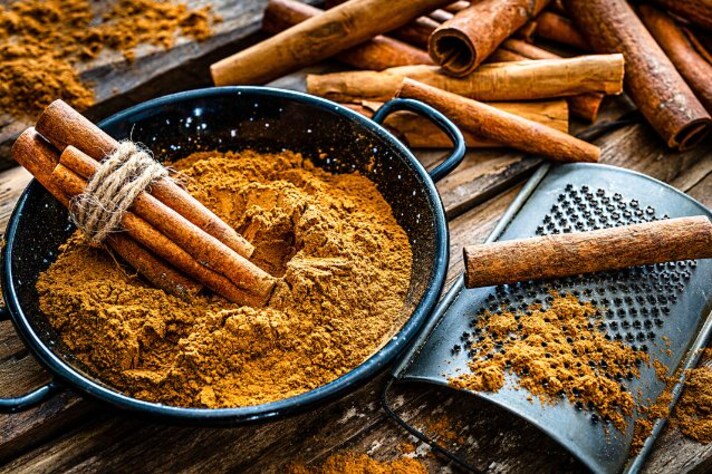
Cinnamon, a spice obtained from the inner bark of several tree species from the genus Cinnamomum, is used in both sweet and savory dishes for its distinctive aroma and flavor. However, there's a viral dare known as the "Cinnamon Challenge" that prompted individuals to attempt swallowing a spoonful of ground cinnamon in under 60 seconds without drinking any liquid. This task is not only difficult but also potentially dangerous. Here's why eating a spoonful of cinnamon like this is a bad idea.
Difficulty in Swallowing Dry Cinnamon
Cinnamon powder is extremely fine and dry. When a large quantity is placed in the mouth, it quickly absorbs saliva, leading to the mouth and throat becoming extremely dry. The lack of moisture makes it almost impossible to swallow the cinnamon, as the body's natural response to dryness hinders the swallowing process. This extreme dryness can also trigger a gag reflex or choking.

Risk of Cinnamon Inhalation
One of the significant dangers of the Cinnamon Challenge is the risk of inhaling the fine powder. When cinnamon is inhaled, it can enter the lungs, potentially leading to coughing, gagging, vomiting, and even a serious condition known as aspiration pneumonia. Aspiration pneumonia occurs when a foreign material, such as cinnamon powder, is inhaled into the lungs, causing an infection or inflammation.
Irritation and Inflammation
Cinnamon contains cinnamaldehyde, a compound that can be irritating to the skin, eyes, nose, and throat. When concentrated amounts of cinnamon powder come into contact with the mucous membranes in the mouth and throat, they can cause burning sensations, coughing, and difficulty breathing due to the irritation and potential inflammation.

Why You Can't Eat Cinnamon Raw
While cinnamon is safe to consume in cooked or baked goods and as a flavoring in small quantities, eating raw cinnamon in large amounts (like a spoonful) can lead to adverse reactions. The body's difficulty in processing a large, dry quantity of cinnamon all at once, combined with the potential irritative effects of compounds like cinnamaldehyde, makes consuming raw cinnamon in this manner inadvisable.
What to Do If You Accidentally Inhale or Swallow Cinnamon
If you accidentally inhale cinnamon, it's important to immediately seek fresh air and try to cough out any cinnamon powder from your lungs. Drinking water can help soothe the throat but won't remove cinnamon from the lungs. It's crucial to monitor for any signs of respiratory distress, such as difficulty breathing, wheezing, or chest pain, and seek medical attention if these symptoms occur.
In cases where a large amount of cinnamon is swallowed and causes discomfort or distress, drinking water or milk can help soothe the irritation. However, if there's significant discomfort, pain, or any signs of an allergic reaction, medical assistance should be sought.
;Resize,width=767;)
